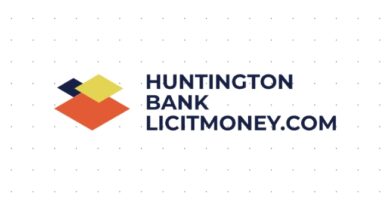Bank Definition
A bank in the United States is a place where people keep their money safe. They help you save money and earn interest. You can open different types of accounts. For example, a checking account lets you pay bills easily. A savings account helps you save for future goals. Additionally, they offer loans. You can borrow money to buy a car or a house. They also have ATMs, where you can take out cash anytime.

History
They have a wonderful long history in United States of America. The first one, the Bank of North America, opened in 1781. It helped the country grow after the Revolutionary War. Over time, more of them opened. They helped people save money and get loans. Today, they are an important part of our economy.
Etymology
The word “bank” comes from the Italian word “banco.” This means “bench.” In the past, money changers used benches to do their business. They exchanged money and kept it safe. This idea grew into what we now know as banks.
Read this also Huntington Bank: Empowering Your Financial Future with Trust and Innovation
Definition
A bank is a place where people keep their money. It also helps people borrow money. They offer services like savings accounts, loans, and checking accounts. They play a key role in managing money for individuals and businesses.
Capital and Risk
Capital is the money that they use to operate. It helps them lend money to customers. However, they also face risks. For example, if many people do not pay back their loans, they can lose money. This is why they must manage their capital carefully.
Economy
They are vital to the economy. They help people buy homes, start businesses, and save for the future. When they lend money, they help the economy grow. This creates jobs and supports communities.
Crisis
Sometimes, they face crises. Their crisis happens when many of them lose money at the same time. This can lead to a loss of trust. People may panic and withdraw their money. The last major crisis in the U.S. was in 2008. It caused many problems for the economy.
Regulations
To prevent crises, the government regulates them. This means they set rules for how they should operate. Regulations help keep them safe and protect customers. The Federal Reserve is one of the main regulators in the U.S.
Types
There are different types of banking. Some of them are commercial ones. They serve individuals and businesses. Others are investment ones. They help companies raise money. There are also credit unions, which are member-owned and often offer better rates.
Challenges
This industry faces many challenges. One challenge is technology. Online banking is growing fast. They must keep up with new technology to stay competitive. Another challenge is cybersecurity. They must protect customer information from hackers.
Types of Accounts
They offer various types of accounts. A savings account helps you save money and earn interest. A checking account is for everyday spending. There are also certificates of deposit (CDs) that offer higher interest rates for money you can leave untouched for a set time.
Types
There are many types. Each type serves different needs.
1. Commercial
Commercial financial institutions are the most common type. They offer services to individuals and businesses. You can open checking and savings accounts here. They also provide loans and credit cards.
2. Credit Unions
Credit unions are not-for-profit organizations. They are owned by their members. This means that they often offer better interest rates and lower fees. You usually need to meet certain requirements to join a credit union.
3. Savings and Loan Associations
These banks focus on saving accounts and home loans. They help people save money and buy homes. They are similar to commercial banks but have a different focus.
4. Investment Financial Institutions
Investment banks help companies raise money. They assist with buying and selling stocks and bonds. They do not offer regular banking services like checking accounts.
5. Online Financial Institutions
Online banks operate only on the internet. They often have lower fees and higher interest rates because they do not have physical branches. You can manage your money from anywhere with an internet connection.
Services
Banks offer many services to help you manage your money. Here are some of the most common services:
1. Checking Accounts
A checking account is a safe place to keep your money. You can use it to pay bills and make purchases. You can also withdraw cash from ATMs.
2. Savings Accounts
A savings account helps you save money. You earn interest on the money you save. This means your money grows over time.
3. Loans
Banks offer different types of loans. You can get personal loans, car loans, and home loans (mortgages). Loans help you buy things you need but may not have enough money for right away.
4. Credit Cards
They provide credit cards that let you borrow money to make purchases. You must pay back the money later, usually with interest.
5. Investment Services
They offer investment services. They help you invest your money in stocks, bonds, and other assets. This wonderful investment services can help you skyrocket your business and wealths over time.
Online Banking
It is a convenient way to manage your money. Online banking can help you access your Bank accounts from your Laptop, computer or even smartphone. Here are some benefits:
Conclusion
In conclusion, they play a vital role in our lives. They help us save, borrow, and manage our money. Understanding the different types of banks and their services can help you make better financial decisions. Remember to stay informed about fees, interest rates, and your credit score. With this knowledge, you can navigate the banking world confidently. Thank you for reading this guide!
